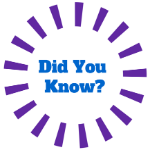Hidden Costs Of Owning A Home

Principal, interest, taxes and insurance are just the beginning. Whether you're a first-time buyer or thinking about moving up, you should plan for extra costs that could add up to thousands each year. First-time homeowners are often startled by the hidden costs of owning a home. The traditional measure of housing expenses—PITI, which stands for principal, interest, taxes and insurance—is just the beginning.
Maintenance, repairs, supplemental insurance, home improvements and decorating can cost you thousands of dollars a year more than you expect. If you're ready to make the jump from renting to buying, and you're financially in good shape, don't let these expenses dissuade you. Be prepared, however, to make sure your home purchase doesn't drive you into debt.
Making Maintenance Routine
How much your home will cost you in maintenance and repairs depends on several factors: the age of the home, how well it's been treated by previous owners, the harshness of your climate—and how much money you want to get out of your home when you sell it. What should you budget annually for such repairs and maintenance?
Making Sure Your Home Is Covered
If you need to take out a mortgage to buy a home—which most of us do—your lender will require you to purchase homeowners' insurance. These policies cover you for most damage to your property, such as that caused by fire or theft. Homeowners' insurance doesn't cover everything, however. Some hidden costs of home buying in this area can include floods, tornados, hurricanes and earthquakes that are among the perils typically not included.
If you live in an area where one or more of these catastrophes is a possibility, you should consider buying supplemental insurance to cover your risk. The cost varies widely, from just a few hundred dollars to thousands of dollars a year. You may also need to buy additional coverage if you have a large collection of antiques, valuable jewelry, furs or lots of computer equipment. Homeowners' policies usually put limits, often fairly low, on how much of these items they'll pay for, and require you to buy a "rider" for an extra fee if you want them fully covered.
 Renos Can Add Up—Quickly!
Renos Can Add Up—Quickly!
"Many times, hidden costs of home purchases can be found in required renovations that pop up over time. Be sure to undertake a thorough due diligence process on the home you have your eye on to determine it's long-term quality."
Improving Your Home The Right Way
One of the great things about being a homeowner is the opportunity to put your personal stamp on a house. You can paint the walls mauve and chartreuse, if you want, without begging a landlord's permission. It's easy to go overboard with home improvements, though. Relatively few projects add much lasting value to your home, let alone guarantee you'll recoup costs.
The big projects can be pretty expensive, as well. A major kitchen redo cost an average $38,769 last year, according to Remodeling magazine, while adding a master suite averaged $63,275. Even changing the color of your house can be pricey. The typical exterior paint job costs $8,336. The more you do yourself, of course, the lower the cost. A few weekends of hard labor could shave the painting bill to less than $1,000 for materials. But not every project is a candidate for doing-it-yourself. Many homeowners choose to hire professionals for electrical, plumbing and skilled carpentry work.
Financial planners recommend borrowing money only when you're buying an asset that appreciates in value, and home improvements typically lose value over time. Furnishings cost money, too. You'll also want to budget money for additional furnishings. Since your new home is likely to be larger than your apartment, you'll probably need more furniture. You may also be buying window treatments, lighting fixtures, carpet or area rugs and appliances—all of which can add up to tens of thousands of dollars. Figure out your budget ahead of time and make sure you have that amount in savings—after all the other costs of buying a home are factored in.
A much better course is to plan for the hidden costs of owning a home. Then you can meet the inevitable bills with confidence, rather than stressing or going into debt. You'll be a happier homeowner, and your well-maintained, appropriately furnished home will reflect your good planning.

Lauren Spencer.
If you have any questions or would like more home buying & selling tips and advice, contact Lauren Spencer, Coldwell Banker Realtor at 1-831-662-6522 or Toll Free: 1-800-226-4717.
Join our site for free and you'll have exclusive access to daily updated listings, that can help you find the perfect fit and your next dream home—from the comfort of your current home!
